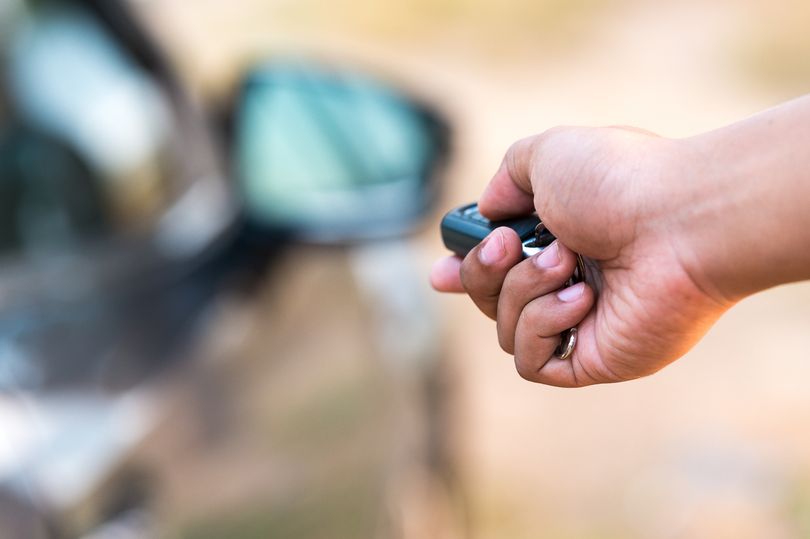Which cars are at risk of ‘keyless theft’?
Most of UK’s top-selling models vulnerable to thieves using tech to bypass entry systems, according to Which?

A free daily email with the biggest news stories of the day – and the best features from TheWeek.com
You are now subscribed
Your newsletter sign-up was successful
Four of the UK’s five best-selling models of car are susceptible to so-called keyless theft, according to a new study.
The Ford Fiesta, Volkswagen Golf, Nissan Qashqai and Ford Focus can all “easily be stolen by thieves using cheap electronic equipment bought online”, consumer group Which? is warning.
Keyless entry systems enable cars to start if a fob is nearby. However, thieves using a pair of radio transmitters can “trick” the vehicle’s sensors into thinking the keyless fob is present.
The Week
Escape your echo chamber. Get the facts behind the news, plus analysis from multiple perspectives.

Sign up for The Week's Free Newsletters
From our morning news briefing to a weekly Good News Newsletter, get the best of The Week delivered directly to your inbox.
From our morning news briefing to a weekly Good News Newsletter, get the best of The Week delivered directly to your inbox.
One transmitter is held beside the car, and the other outside the owner’s home, in order to relay the signal from the vehicle to open the car door and turn on the ignition.
The Which? investigation found it can take as little as 18 seconds to steal a car using this method. And such crime is “on the rise with the proliferation of keyless cars and the readily available hacking technology online”, says the Daily Express.
An analysis of data from the German General Automobile Club (ADAC) by Which? revealed security flaws in almost 99% of 237 keyless cars that were tested.
Only seven models were not susceptible to being both unlocked and started, and a mere three - all from Jaguar Land Rover - “were completely impervious to attempts to unlock or start their engines”, reports The Guardian.
A free daily email with the biggest news stories of the day – and the best features from TheWeek.com
The flawed models were made by a total of more than 30 car brands, including Audi, BMW, Peugeot, Renault, Skoda, Volvo and Honda. Of the top-selling cars in the UK, only the Vauxhall Corsa was regarded as safe, because it is not available with keyless entry and ignition.
“Carmakers have sacrificed the security of scores of modern cars for the sake of convenience,” Which? said.
The organisation’s report continued: “Thieves have been using keyless theft for several years, but manufacturers continue to make new models that can be stolen in this way, meaning there is an ever-larger pool of vehicles for thieves to target.”

Responding to the findings, Ford told Which? that customers were advised to keep their fob in a metal case in order to prevent thieves from hijacking the signal.
All of the other brands said they were constantly looking for ways to make their cars more secure, with the exception of Honda, which declined to comment.
Mike Hawes, head of the Society of Motor Manufacturers and Traders (SMMT), told the BBC: “Industry takes vehicle crime extremely seriously and any claims otherwise are categorically untrue. Criminals will always look for new ways to steal cars - it’s an ongoing battle and why manufacturers continue to invest billions in ever more sophisticated security features, ahead of any regulation.
“However, technology can only do so much and we continue to call for action to stop the open sale of equipment with no legal purpose that helps criminals steal cars.”
-
 The ‘ravenous’ demand for Cornish minerals
The ‘ravenous’ demand for Cornish mineralsUnder the Radar Growing need for critical minerals to power tech has intensified ‘appetite’ for lithium, which could be a ‘huge boon’ for local economy
-
 Why are election experts taking Trump’s midterm threats seriously?
Why are election experts taking Trump’s midterm threats seriously?IN THE SPOTLIGHT As the president muses about polling place deployments and a centralized electoral system aimed at one-party control, lawmakers are taking this administration at its word
-
 ‘Restaurateurs have become millionaires’
‘Restaurateurs have become millionaires’Instant Opinion Opinion, comment and editorials of the day